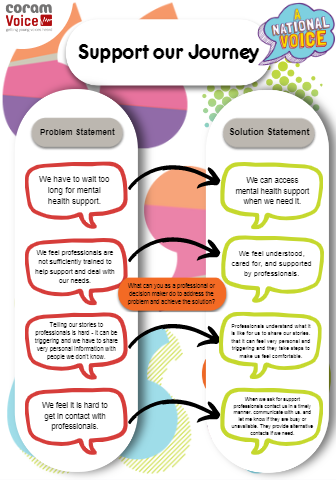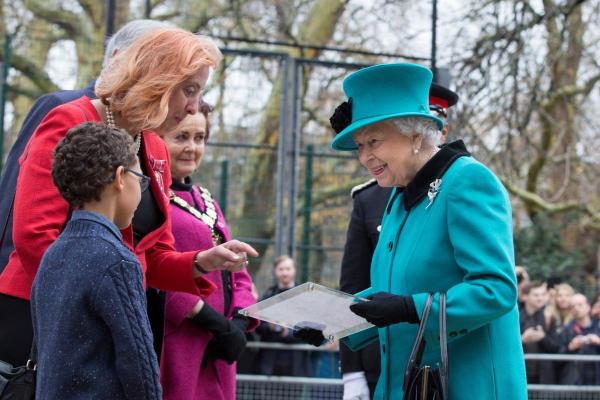01 Sep 22
Back in June 2020 Ofsted published a consultation to seek views on introducing a care leavers judgement as part of their inspection of local authorities. Coram Voice strongly support the proposal that the experiences and progress of care leavers should be a key judgement – by highlighting expectations of services for care leavers the judgement has the potential to inspire investment and increased focus on provision for care leavers by local authorities. Care leavers should be considered a primary part of services and given the same weighting as services for children in care (there are approximately 75,000 care leavers and around 80,000 children in care).
Below we highlight some of the issues we included in our consultation response (submitted end July 2022) – we look forward to seeing the outcome of the consultation later in the year.
The judgement should focus on what matters to care leavers. We have set out what we have learned from the Bright Spots programme is important to care leavers. Findings from the Programme highlight the things that are strongly associated with care leavers’ well-being.
These findings suggest that you should always pay particular attention to the specific areas care leavers highlight locally, as well as the key issues we find are associated with well-being.
-
- Improve connections and relationships (to develop friendships, trusting supportive relationships and addressing loneliness);
- Provide emotional and mental health support (to address stress, high negativity and low positivity and help care leavers feel good about themselves and their future);
- Provide money management and financial support (to support care leavers to cope financially);
- Improve accommodation support (to help care leavers feel safe and settled where they live)
Our evidence suggests that local authorities (and in turn Ofsted through the inspection process) need to shift their focus to designing services with a clearer focus on young people’s well-being – i.e. what makes life good. This will help establish a care system that not only keeps children and young people safe, but also helps them to thrive.
Key questions that we believe Ofsted should be focusing on in inspection are:
-
- Are local authority services really based on what care leavers say is important?
- Is there evidence that local authorities know how their young people are feeling?
- What examples is there that local authorities work in partnership with care leavers to design and deliver support? (and young people have the chance to scrutinise progress e.g. Sheffield have a ‘reverse scrutiny panel’)
To support this suggestion – that Ofsted does not just focus on care leavers’ satisfaction with services but looks at what evidence there is that local authorities are supporting care leavers’ well-being – is there evidence that care leavers are happy, safe, have fun and feel their life is going well from their own view point.
It is important the local authorities know how care leavers feel they are doing rather than relying on their own professional judgements; for example, latest statistics show that 85% of care leavers are in ‘suitable accommodation’ as rated by services but when care leavers themselves are asked if the home they live in is right for them the proportion drops to just over two thirds (68%).
Having reviewed the current Ofsted criteria for children in care and care leavers – we have found a range of areas that care leavers themselves have identified as important to their well-being which are not covered in the current care leaver evaluation criteria.
We suggest Ofsted review this list and incorporate into inspection framework to ask local authorities if they have evidence of how their care leavers are feeling in these areas. We are very happy to work further with you on this including working alongside our care experienced consultants.
Our New Belongings programme works with local authorities to ensure care leavers experiences and ideas are at the centre of service design and delivery. The programme emphasises the following elements as integral to high quality services – Ofsted evaluation criteria should look for evidence that local authorities have these elements in place:
- Co-production with care leavers – offer a varied menu of participation options
- Commitment from senior leadership to drive change (political & executive)
- Capacity to deliver (empowered staff / supported managers)
- Whole system approach – engagement of partners & wider community
- Learning alongside others (peer learning use of research evidence)
Through our national advocacy helpline and safety net Always Heard, we know that care leavers are not always included in advocacy contracts and therefore able to get the support they need to be heard in the decisions that are important to them or to challenge local authorities when they are not supported well. The 2022 Always Heard report found that at least 14% of local advocacy services are restricted or are unable to support care leavers aged 18-25.
In line with the recommendations around complaints and making sure that care leavers understand their rights and entitlements we also believe that no local authority should be deemed good or outstanding if they do not offer advocacy support to care leavers.
Avoiding artificial divisions
Whilst we support a separate judgement for care leavers we urge caution against creating an ‘artificial division’ between children in care services and those for care leavers. It will be important for inspectors to continue to consider children’s journey through care (and leaving care as a continuum of that support).
Planning for transition from care needs to be a focus of care planning and assessment which post 16 becoming pathway planning. It is imperative that there is good joint working, preparation and detailed ‘handover’ from social worker to Personal adviser.
Too often care leavers face changes in worker and services based on service need rather than what is best for the young person. Either the children in care judgement or the care leaver judgement should include focus on how the transition between service works – this should include different transitions e.g. health service transition; transitional safeguarding arrangements for those experiencing exploitation etc.
There is a danger that by not adequately recognising the need to plan for transition as a child in care inadequate or incomplete needs assessment and plans are passed over to leaving care services making it more difficult to support care leavers.
The Independent review of children’s social care has set out five missions for leaving care – this shows that what matters to care leavers is inextricable linked to what happens in childhood (for example, developing relationships to avoid loneliness ).
Therefore the new judgement on care leavers must recognise that supporting care leavers to succeed in life starts in childhood (and reference joint working with services for children in care). The evaluation criteria and inspection must make sure Children Looked After services are thinking longer term about their children as they grow older.
For example, care leavers tell us that ‘preparation’ for living more independently should not start late – it is not about a one off ‘course’ but about building in opportunities as grow older to have more responsibility (using the bus as a teenager, learning how to use the cooker as a child etc).
Leaving care provision is affected by the quality of the preparation and support young people receive before they leave care. The children in care criteria must reflect the detailed planning that social workers and IRO need to do in partnership with children aged 16 and 17 as they grow older and prepare to leave care. Some ‘eligible’ children (i.e. looked after children aged 16 or 17) will be living in ‘other arrangements’ (‘unregulated’ placements) – their experiences will be captured in the children in care part of the inspection. It may be helpful to clarify who the ‘care leaver’ judgement includes – is it only ‘relevant’ and ‘former relevant’ young people?
Evidence of effective partnership working and strategic commitment
Through New Belongings programme we have done some work on ‘ring fencing opportunities’ and ‘guaranteed job interviews’ for care leavers in local authorities – could Ofsted (as part of Annex A or other mechanism) ask during the inspection for the number of opportunities created for care leavers – understanding this would be a way of seeing how partnership working is going (is there evidence of other departments offering opportunities), it is a tangible way to demonstrate ethos of corporate parenting (a job in the ‘family business) and in including the request in the inspection process it could act as a driver to encourage more work in this area.
The government civil service internship scheme for care leavers has been successful and grown in numbers year on year but in local authorities there is still much variation in terms of how many employment opportunities are offered.
The local offer every local authority has to produce should list all the statutory duties but it should also include all the ‘additional support’ each local authority has. As part of the Annex A (or equivalent request) could local authorities produce a list of all additional offers they have included in their local offer to care leavers (above and beyond statutory support) – the way local offers are often written makes it hard to decipher the additional aspects a local authority has (e.g. driving lesson; mental health worker based in team; free prescriptions; payment towards WIFI costs) – asking a local authority to specify would demonstrate the strength of partnership working i.e. is there evidence of additional offers from other departments or community groups.
Local offer guidance: Guidance for local authorities
Ensuring services and support work for all care leavers
There is recognition in the Ofsted evaluation criteria of care leavers with ‘learning difficulties and or disabilities’ and also reference to care leavers who are parents. There are other groups who may have additional support needs (for example; unaccompanied asylum seeking young people; those in custody) – it will be important to ask local authorities about how their support and services flexibly respond to care leavers.
Advocacy is important to ensure care leavers’ rights are met but not all young people are able to access them. Not all services offer translation services for young people with a second language, or non-instructed advocacy for young people with disabilities that prevent them from instructing an advocate.
Data recording
With regard to how the judgement for care leavers should affect our judgement on ‘the impact of leaders on social work practice with children and families’ – we feel there should be focus in this part of the inspection on how care leavers voice and experiences shape service planning and delivery e.g. are care experienced young people part of the governance structures such as corporate parenting forum; does the local authorities have examples of how care experienced young people have influenced services; how are young people involved in monitoring progress etc.
In the care leaver judgement consultation proposal Ofsted cite that there are around 45,000 care leavers aged 17 to 21 and another 30,000 care leavers aged up to 25 – as part of the report it would be useful if Ofsted could report on the number of care leavers each authority is working with (especially post 21 when the arrangement is voluntary – numbers should be disaggregated i.e. total number of care leavers eligible for service age 21, 22, 23, 24 and then number who receive service).


